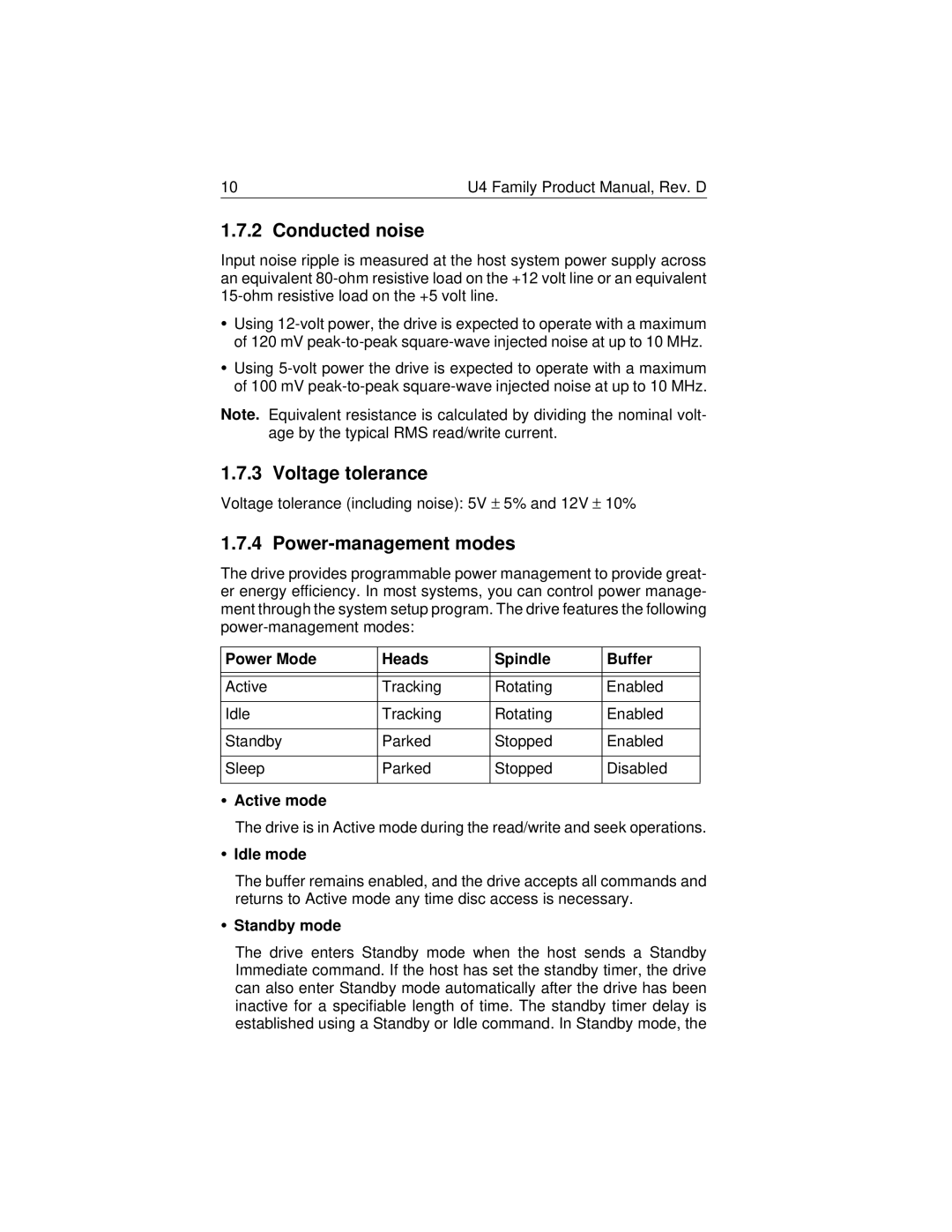10 | U4 Family Product Manual, Rev. D |
1.7.2 Conducted noise
Input noise ripple is measured at the host system power supply across an equivalent
•Using
•Using
Note. Equivalent resistance is calculated by dividing the nominal volt- age by the typical RMS read/write current.
1.7.3 Voltage tolerance
Voltage tolerance (including noise): 5V ± 5% and 12V ± 10%
1.7.4 Power-management modes
The drive provides programmable power management to provide great- er energy efficiency. In most systems, you can control power manage- ment through the system setup program. The drive features the following
Power Mode | Heads | Spindle | Buffer |
|
|
|
|
|
|
|
|
Active | Tracking | Rotating | Enabled |
|
|
|
|
Idle | Tracking | Rotating | Enabled |
|
|
|
|
Standby | Parked | Stopped | Enabled |
|
|
|
|
Sleep | Parked | Stopped | Disabled |
|
|
|
|
•Active mode
The drive is in Active mode during the read/write and seek operations.
•Idle mode
The buffer remains enabled, and the drive accepts all commands and returns to Active mode any time disc access is necessary.
•Standby mode
The drive enters Standby mode when the host sends a Standby Immediate command. If the host has set the standby timer, the drive can also enter Standby mode automatically after the drive has been inactive for a specifiable length of time. The standby timer delay is established using a Standby or Idle command. In Standby mode, the
